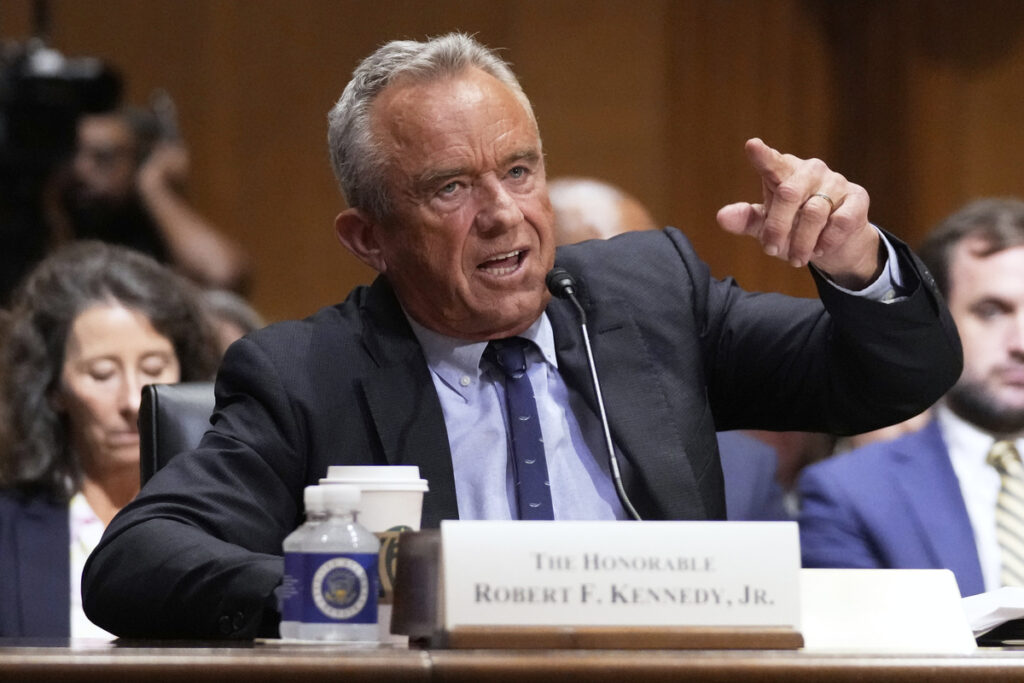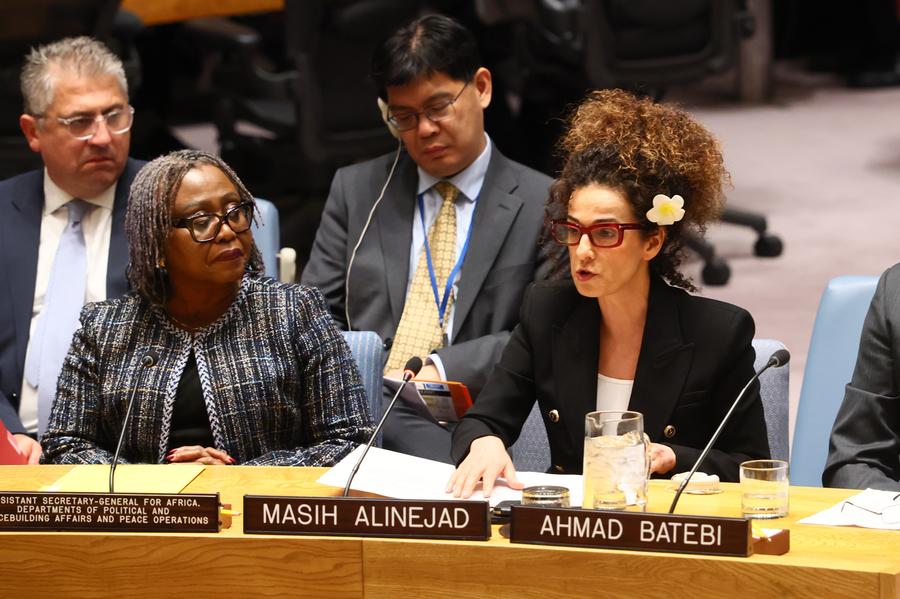
Secretary of Health and Human Services Robert F. Kennedy Jr., appears before the Senate Finance Committee, on Capitol Hill in Washington, Thursday, Sept. 4, 2025. (AP Photo/Mark Schiefelbein)
U.S. Health Secretary Robert F. Kennedy Jr. faced intense questioning during a contentious three-hour Senate committee hearing on Thursday. Lawmakers from both parties expressed concerns regarding his proposed changes to COVID-19 vaccination policies and the recent upheaval at federal health agencies. The hearing, convened by the Senate Finance Committee, shifted quickly from a discussion of his initiative to “Make America Healthy Again” to a heated debate over vaccine recommendations.
The exchanges escalated into shouting matches as Democratic senators challenged Kennedy on his stance regarding the COVID-19 vaccines. Notably, Senator Ron Wyden of Oregon accused Kennedy of “stacking the deck” of a vaccine committee by replacing credible scientists with individuals he characterized as “skeptics and conspiracy theorists.” Wyden attempted to have Kennedy sworn in as a witness, citing a history of dishonesty, but committee chair Senator Mike Crapo of Idaho denied the request, insisting that Kennedy should present his case freely.
Tensions heightened when Republican senators, while generally supportive of Kennedy, expressed their unease about his approach to COVID-19 policies. Senator Thom Tillis of North Carolina questioned Kennedy’s conflicting statements regarding former President Donald Trump‘s Operation Warp Speed, which expedited vaccine development. “I can’t tell where you are on Operation Warp Speed,” Tillis remarked, highlighting the confusion surrounding Kennedy’s views.
Kennedy defended his actions, particularly the recent firing of Susan Monarez, the CDC director, after less than a month in office. He claimed that she was dishonest and that the CDC’s leadership had failed to adequately address chronic diseases. “The people who at CDC who oversaw that process … are the people who will be leaving,” Kennedy asserted, criticizing their handling of pandemic recommendations related to lockdowns and masking.
The atmosphere remained charged as Kennedy faced pointed questions from various senators. When Senator Raphael Warnock of Georgia inquired about Kennedy’s comments regarding CDC employees in relation to a violent incident at the agency, Kennedy responded with a provocative question, suggesting a connection to political violence. His heated exchanges continued with Senator Bernie Sanders and others, as he dismissed their queries and labeled some of their statements as “gibberish.”
The hearing revealed deeper concerns among health professionals regarding Kennedy’s capacity to lead public health initiatives. In response to his controversial decisions, including halting recommendations for COVID-19 vaccinations for healthy children and pregnant women, over 20 medical organizations, including the Infectious Diseases Society of America, called for Kennedy’s resignation. Their statement emphasized the necessity for leadership that fosters scientific integrity and public health safety.
As Kennedy continues to implement changes, the repercussions of his policies are being closely monitored. Prominent organizations such as the American Medical Association and American Academy of Pediatrics have voiced alarm over his actions, predicting they could lead to increased rates of vaccine-preventable diseases.
The hearing underscored the contentious nature of public health policymaking amidst ongoing debates about vaccine safety and effectiveness, highlighting the challenges facing leaders in navigating a divided political landscape.







